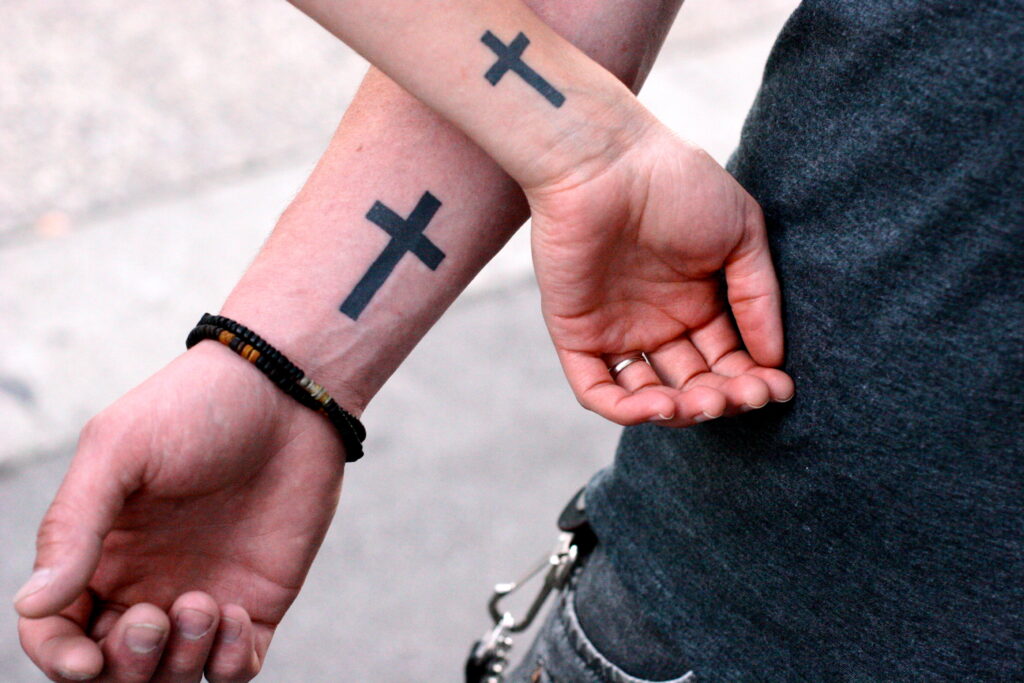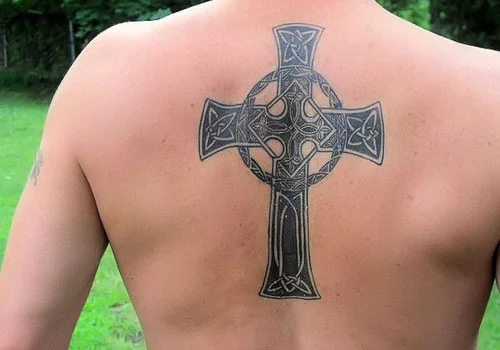Tattoos. Piercings. Artistic expression—or something deeper? For many converts to the Orthodox Christian faith, questions surrounding body modifications are deeply personal. Some wonder whether it’s acceptable to have tattoos or multiple piercings now that they’ve embraced Orthodoxy. Others carry marks from their past—tattoos from a previous lifestyle or piercings done without much thought—and seek clarity on how to view them through the lens of their new faith.
So, what does the Orthodox Church actually teach about tattoos and body piercings? Let’s take a closer look.
What the Bible Says About Marking the Body
The word “tattoo” comes from the Tahitian term tatau, meaning “to mark the skin.” In ancient times, such body markings were deeply rooted in pagan rituals. Tattoos were often linked to rites of passage, death, or tribal identity. Piercings, too, were common in pagan cultures, sometimes adorning various body parts with ornaments to honor their gods or deceased loved ones.
In Leviticus 19:28, God clearly commands the Israelites:
“Ye shall not make any cuttings in your flesh for the dead, nor print any marks upon you: I am the Lord.”
This command was not random. It was God’s way of separating His people from the surrounding pagan nations. By rejecting these body modifications, the Israelites demonstrated their identity as God’s holy people.
Some modern Christians argue that Leviticus contains ceremonial laws that no longer apply under the New Covenant. But the Orthodox Church, guided by both Scripture and Holy Tradition, has maintained a consistent skepticism toward tattoos throughout history—not because of legalism, but because of the sacred understanding of the body.
Historical Exceptions: Faith Under Oppression
While the early Church generally rejected tattoos and body modifications, there are some notable historical exceptions that are both sobering and profound.
Among the Coptic and Ethiopian Orthodox, as well as Bosnian Croat Christians, tattooing children with a small cross became a desperate act of faith and protection. During centuries of Ottoman rule, Christian families feared their children might be kidnapped by Muslim authorities, forcibly converted, or even killed. A cross tattoo served as a permanent mark of their Christian identity—something that could be recognized even in death.
These were not tattoos for fashion or personal expression. They were acts of resistance and love, born from unimaginable suffering. They serve as a powerful reminder: context and intention matter deeply in the Orthodox understanding of body and soul.
Honoring the Temple: A Spiritual Perspective on the Body
In the New Testament, Saint Paul reminds us:
“Do you not know that your body is the temple of the Holy Spirit who is in you…? You are not your own. You were bought at a price. Therefore glorify God in your body and in your spirit, which are God’s.”
—1 Corinthians 6:19-20
This is the heart of the Orthodox view. Our bodies are not canvases for self-expression—they are sacred vessels, dwelling places of the Holy Spirit. Just as we wouldn’t scribble graffiti on a holy icon or deface a church, we should not disfigure the body that God Himself created.
Yes, we live in a culture obsessed with appearances. But we are called to something higher. In Romans 12:1-2, we are exhorted:
“Present your bodies as a living sacrifice, holy, acceptable to God… and do not be conformed to this world.”
Rather than following the latest trends or societal norms, we are called to reflect God’s glory in how we live—and in how we treat our bodies.

Real Questions from Real Converts: A Faithful Response
I already have tattoos and piercings. Can I still become Orthodox?
Yes. Absolutely. These things are not unforgivable sins. Conversion is about the heart turning to God. If you are sincerely seeking Christ, no past mistake can keep you from the Church.
Is it wrong for an Orthodox Christian to get new tattoos or piercings?
The Church doesn’t issue blanket bans, but Orthodoxy urges caution and spiritual discernment. Because our bodies belong to God, unnecessary modifications may be seen as dishonoring what He has created. In serious cases, they may result in penance or being temporarily barred from Holy Communion.
What about religious tattoos, like crosses or Scripture verses?
While it might feel like a form of devotion, such tattoos often stem more from personal desire than true humility. Our identity as Christians should be known by our love, our actions, and our prayerful way of life—not external symbols on the skin.
Can I pierce my daughter’s ears while she’s still a child?
This is a matter best discussed with your priest. Generally, forcing a child to undergo a cosmetic procedure like ear-piercing against her will is discouraged. Our goal should always be to glorify God—not to conform to cultural expectations.
What should I do if I already have visible tattoos?
Start by covering them when possible. If you feel called to remove them, begin with the most visible or inappropriate ones. Laser removal can be expensive, so take it one step at a time—and seek spiritual support throughout the process.
The Orthodox Path: Choosing Holiness Over Trends
To summarize: while there is no explicit canon law forbidding tattoos or piercings, the overall spirit of Orthodox Christianity leans strongly against them. Why? Because we are not our own. Our bodies were created to glorify God, not to follow fashion or trends.
If you already bear the marks of past choices, do not be ashamed. Bring them to Christ in confession. Let His mercy transform even what was once misguided into a new beginning.
Closing Reflection
You don’t need ink to show the world you belong to Christ. Let your body, your words, your life—all become a living icon of God’s love. That’s the mark that truly matters.

